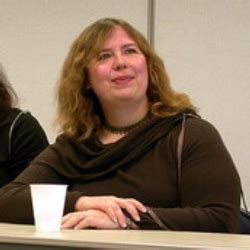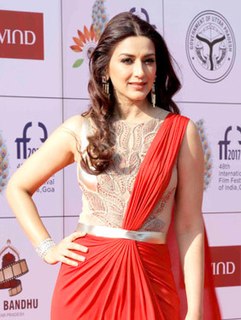A Quote by Ruth Glick
I read mostly science-fiction and fantasy when I was a teenager, and I was always drawn to stories where the characters had telepathic powers.
Related Quotes
Science fiction is fantasy about issues of science. Science fiction is a subset of fantasy. Fantasy predated it by several millennia. The '30s to the '50s were the golden age of science fiction - this was because, to a large degree, it was at this point that technology and science had exposed its potential without revealing the limitations.
'Filk' is the folk music of the science fiction and fantasy community - you get parodies, you get traditional music that's had the words slightly modified, and you'll also get just original works that have been written about science fiction and fantasy works, or with science fiction and fantasy themes.
I define science fiction as the art of the possible. Fantasy is the art of the impossible. Science fiction, again, is the history of ideas, and they're always ideas that work themselves out and become real and happen in the world. And fantasy comes along and says, 'We're going to break all the laws of physics.' ... Most people don't realize it, but the series of films which have made more money than any other series of films in the history of the universe is the James Bond series. They're all science fiction, too - romantic, adventurous, frivolous, fantastic science fiction!
Science fiction is a weird category, because it's the only area of fiction I can think of where the story is not of primary importance. Science fiction tends to be more about the science, or the invention of the fantasy world, or the political allegory. When I left science fiction, I said "They're more interested in planets, and I'm interested in people."
I really wish that peoplewould just say, 'Yes, it's a comic. Yes, this is fantasy. Yes, this is Science Fiction,' and defend the genre instead of saying, 'Horror is a bit passe so this is Dark Fantasy,' and that' s playing someone else's game. So that's why I say I'm a fantasy writer and to hell with 'It doesn't read like what I think of as a fantasy'. In that case what you think of as a fantasy is not a fantasy. Or there is more to it than you think.
If you go all the way back, I've always written science-fiction, I've always written fantasy, I've always written horror stories and monster stories, right from the beginning of my career. I've always moved back and forth between the genres. I don't really recognise that there's a significant difference between them in some senses.




































